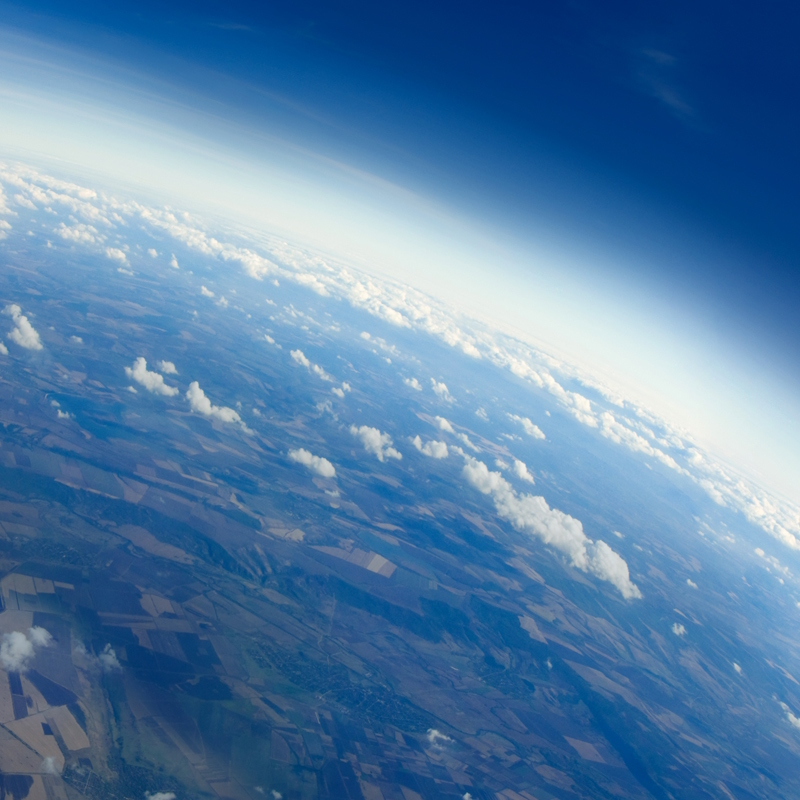The Royal Society’s Global Environment Research Committee looks at the scientific aspects of these challenges and their possible solutions.

The Earth faces numerous challenges as we attempt to satisfy the needs of its inhabitants while maintaining the quality of the natural environment. The Royal Society’s Global Environment Research Committee (which I chair) looks at the scientific aspects of these challenges and their possible solutions. However, increasingly we are also seeking to engage with others – business, government, and civil society as well as other branches of academia – who must contribute to navigating a path through environmental pressures. Late last year, we assembled an interdisciplinary group of 40 experts from these different stakeholders to discuss how oceans and cities will respond to global change. Our aim was to explore priorities for research, and to assess how the UK’s research strengths could best support the international effort to promote sustainable development within a thriving environment. The resulting report (PDF), published this spring, sets out a number of urgent future research questions in each area.
Blue Oceans
The oceans provide enormous economic opportunities. Commerce, food, transport, energy, mineral and genetic wealth are all sourced from, and facilitated by, our seas. However, the exploitation of these opportunities, the impact of land-based activity, and the influence of climate change all pose a risk to the systems that provide these resources. In this session our experts looked toward the areas of research where an interdisciplinary and holistic view could suggest sustainable solutions.
The impact of multiple pressures is not well-handled by the compartmentalised approach we often take to issues like sea level rise, ocean acidification, microplastics and pollution runoff. To help scientists and policymakers address regional priorities appropriately, a new set of maps and visualisations was proposed. These maps would address the heterogeneity of impacts, and should illustrate the local and global threats that specific areas are vulnerable to. The aim would be to enable proper management of all the competing pressures, and a sharper focus on the impact of policies and activities at different scales.
An obvious hotspot such maps would certainly highlight is that of coastal cities, which both the oceans and cities participants discussed separately and together. These are the places where the combined behaviour and practices of large populations most directly interact with the marine systems that they (and we) rely on for commerce, leisure, food and other services. Bringing together social and natural scientists to define what sustainable coastal cities might comprise was seen by both cities and oceans researchers as a very fruitful line of research.
Moving slightly further from the coast, shelf seas are another hotspot that require particular attention. Being shallow and coastal, they experience both local and global pressures. Additionally their health and status impacts the wellbeing of coastal communities. While individual sections of shelf sea may come under a single jurisdiction, the issues faced by shelf seas transcend manmade boundaries and therefore complex issues about responsibility and governance have to be considered in addition to more traditional scientific and regulatory responses.
Among the economic activities within the marine environment, the meeting particularly considered issues of food supply. Marine systems are a major global food source and a dominant one in some regions. Understanding how to use wild fish resources sustainably requires consideration of the impacts of climate change and potentially acidification, as well as dietary preference and the behaviour of fishing fleets. The rising importance of aquaculture imposes strong local stresses while still requiring wild fish capture for feedstock. Maintaining the health of global ecosystems while also maintaining food supply requires significant interdisciplinary study.
Green Cities
With over half the human population now living in cities, they are the places where we need sustainable living spaces, and they are also the places where sustainability will reduce pressure on the rest of the planet. Increasing population, urbanization and infrastructure demand are resulting in many challenges for governments, local authorities and the societies they serve. The wellbeing and prosperity of citizens must be ensured, while minimizing the impact on the environments both in and out of cities. To achieve this socioeconomics, pollution, transport, energy, food and health all must be considered, as well as how changes in technology, governance and industry can influence these factors. Pathways to sustainability may be different for mature northern cities than for developing southern ones and this needs to be taken into account when researching generic “cities”.
The meeting felt that some underlying questions had to be answered in order to create the teams and conditions for strong interdisciplinary research in this area. What is the current research base in cities and sustainability in the UK? Who are the critical relevant stake holders in terms of urbanization that we must engage with? What can we learn about cities by seeing them as an interaction between planning, innovation and citizen behaviour? Which cities will be most affected by global environment change? Which cities are likely to grow so fast that current interventions need to be reimagined? With these questions, there was a recognition that greater interdisciplinary research and collaboration required a smarter use of data across traditional boundaries. As examples, it was suggested that market, consumer, health, environmental monitoring and social data would all contribute to the information needed for improvements in topics such as citizen health, traffic flows and air quality.
The Future
By bringing together groups of academics who don’t normally meet up, by challenging jargon and observing different perspectives, we hope to have begun the process of tackling these challenges. Allowing time for discussion and building bridges across disciplines has given us an opportunity to consider where solutions might come from, and start discussing research programmes that different disciplines need to work on together. Some of the stakeholders we’d hoped to engage in this process were not attracted to this meeting, and there are lessons to be learnt in how prequels and sequels from an event can be used to ensure we are looking at the right problems and using the best resources to tackle them.
Meanwhile the UK government has made significant amounts of funds available for research on global challenges such as those we have identified, through the Global Challenges Research Fund (GCRF). Some of the areas we have discussed above would form ideal topics for GCRF initiatives and we hope that we can convene further meetings of this type to explore topics in other sectors.
Finally, the UK has recently convened a national committee, spanning the UK academies, funding agencies and other stakeholders, for the global Future Earth “platform”, which has a mission of providing “research for global sustainability”. Our full report gives a solid grounding for future research, highlighting areas in which interdisciplinary researchers can work together to tackle the planet’s most urgent and important challenges, and constitutes an early UK contribution to defining Future Earth priorities.
What other topics do you think could benefit from this treatment? Let us know in the comments.

